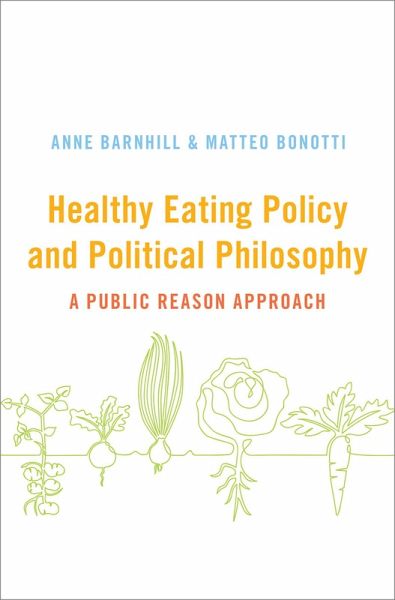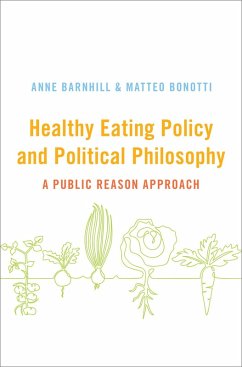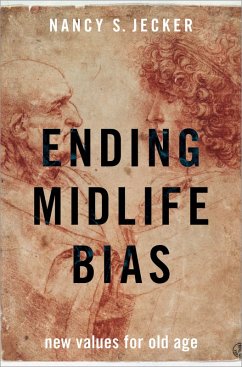
Healthy Eating Policy and Political Philosophy (eBook, ePUB)
A Public Reason Approach
Versandkostenfrei!
Sofort per Download lieferbar
30,95 €
inkl. MwSt.
Weitere Ausgaben:

PAYBACK Punkte
15 °P sammeln!
Who gets to decide what it means to live a healthy lifestyle, and how important a healthy lifestyle is to a good life? As more governments make preventing obesity and diet-related illness a priority, it's become more important to consider the ethics and acceptability of their efforts. When it comes to laws and policies that promote healthy eating--such as special taxes on sugary drinks and the banning of food deemed unhealthy--critics argue that these policies are paternalistic, and that they limit individual autonomy over food choices. In Healthy Eating Policy and Political Philosophy: A Publ...
Who gets to decide what it means to live a healthy lifestyle, and how important a healthy lifestyle is to a good life? As more governments make preventing obesity and diet-related illness a priority, it's become more important to consider the ethics and acceptability of their efforts. When it comes to laws and policies that promote healthy eating--such as special taxes on sugary drinks and the banning of food deemed unhealthy--critics argue that these policies are paternalistic, and that they limit individual autonomy over food choices. In Healthy Eating Policy and Political Philosophy: A Public Reason Approach, Anne Barnhill and Matteo Bonotti show that both paternalistic justifications for healthy eating efforts and anti-paternalistic arguments against them can be grounded in perfectionist views that overly prioritize some values over others. The authors therefore propose a more inclusive, public reason approach to healthy eating policy that will be appealing to those who take pluralism and cultural diversity seriously, by providing a framework through which different kinds of values, including but not limited to autonomy and health, can be factored into the public justification for healthy eating efforts. Additionally, the book adopts a 'farm to fork' approach to the ethics of healthy eating efforts: it engages with theories and debates in political philosophy, considers the implications of different theoretical positions for healthy eating efforts, and then develops a concrete tool for assessing policies that will be of interest to both scholars and policymakers. As well as offering a novel normative analysis of healthy eating policy, the authors offer a new theoretical framework that will be applicable to a wide range of public policy scenarios.
Dieser Download kann aus rechtlichen Gründen nur mit Rechnungsadresse in A, B, BG, CY, CZ, D, DK, EW, E, FIN, F, GR, HR, H, IRL, I, LT, L, LR, M, NL, PL, P, R, S, SLO, SK ausgeliefert werden.













